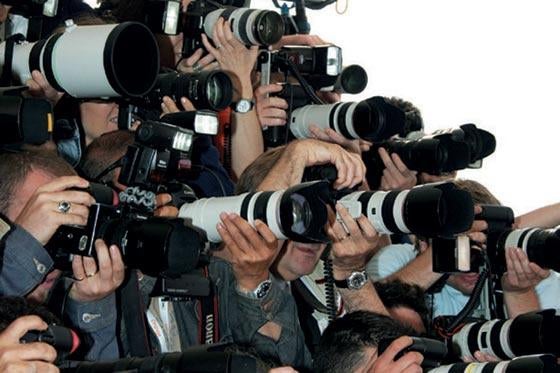
More and more photographers are being wrongly prevented from taking pictures in public places by police who do not understand the law, according to a photography trade body.
The Bureau of Freelance Photographers (BFP) said it had seen an increase in reports of police acting outside their powers in the past 12 months – and expected a further rise in 2008.
In the latest case officers escorted a member of a local photographic society away from a ceremony to switch on Christmas lights in a town centre after wrongly telling him that he needed a “licence” to take pictures of the scene.
“We are getting reports coming in all the time – not just from our members but from various sources,” said Stewart Gibson, head of member services at the BFP.
“And we’re just expecting these cases to keep on going up.”
Concerns about terrorism and paedophiles might be behind the problem, he said.
“Time and time again people are being told ‘you cannot take pictures here’ – things like that. They don’t seem to worry too much about tourists but anyone with serious equipment seems to be a target,” he said.
“It seems now that police have all sorts of powers to stop people doing things but officers often don’t understand what they can do and can’t do.
“There seems to be a feeling that people have some right of privacy in law in some way that means they can’t have their picture taken.
“They don’t. Basically photographers can photograph what can be seen. If you can see me standing at a bus stop you can photograph me. Even when pictures are taken of people on private property – that’s not a matter for the police.”
He said in the latest case two police officers had stopped amateur photographer Phil Smith, 49, from taking pictures of Christmas lights being switched on in Ipswich, Suffolk, in November.
“Mr Smith contacted us for advice. He was escorted away by two police officers after being told he needed a ‘licence’,” said Mr Gibson.
“A ‘licence’ to take pictures in a public place? That’s a new one on us.
It’s nonsense. There seems to be some suggestion that the organisers had booked a ‘host’ photographer. Even if that’s the case it’s got nothing to do with the police. That would be a matter of civil law.”
Smith, of Ipswich, said he had received an apology from Suffolk police following the incident in November.
He said he had been taking pictures of the ceremony and hoped to photograph actress Letitia Dean, who was scheduled to appear, when police intervened.
“I was gobsmacked,” said Smith, a member of the Ipswich and District Photographic Society.
“I was just standing in the crowd when the two special constables came up to me and asked me if I had a licence.
“They said they had seen me taking pictures of the crowd which was not allowed.
“They escorted me away. I was embarrassed because it must have looked like I had committed a serious crime.”
Smith said a police inspector had later confirmed that he had done nothing wrong and apologised.
Email pged@pressgazette.co.uk to point out mistakes, provide story tips or send in a letter for publication on our "Letters Page" blog
